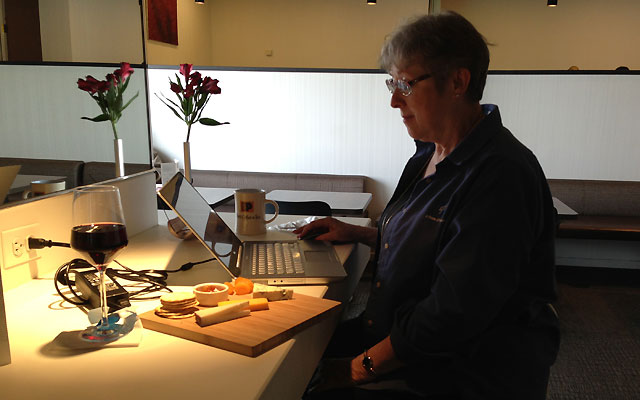
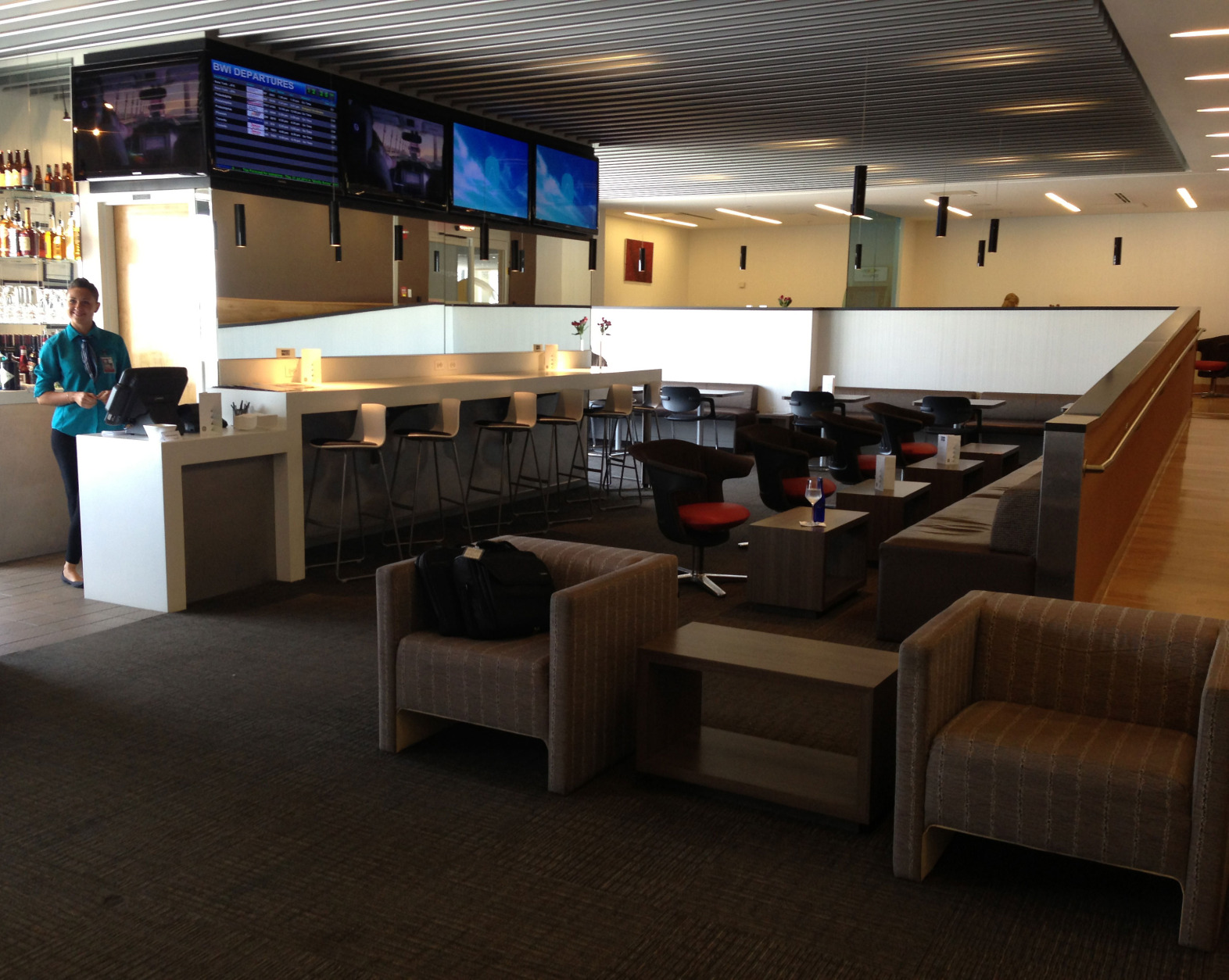
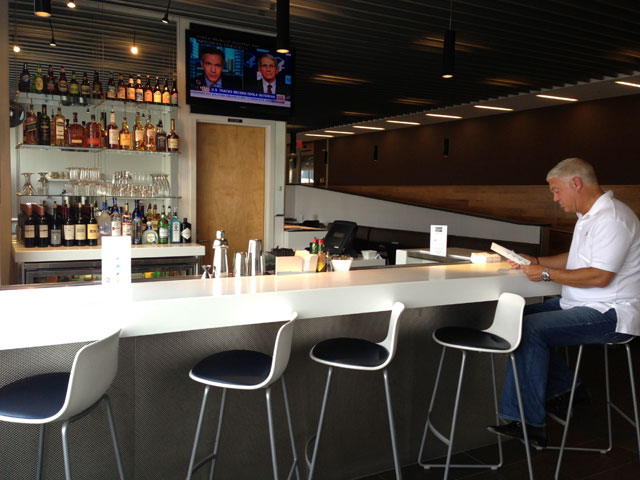
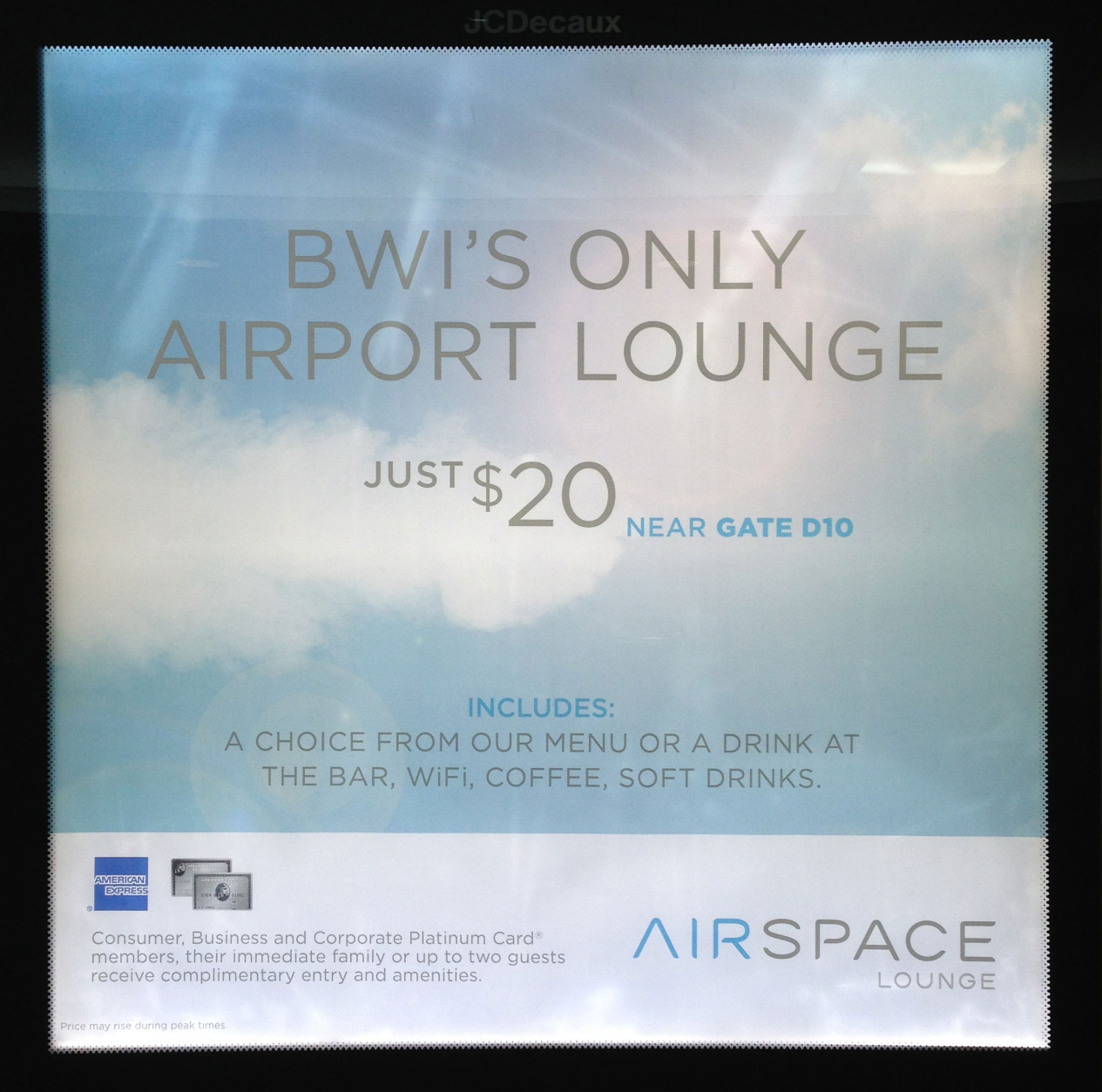
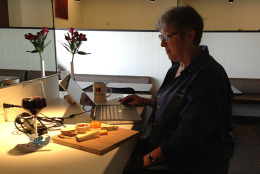
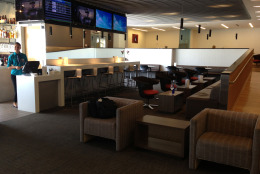
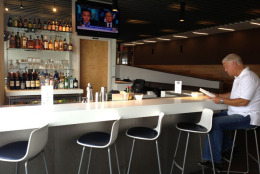
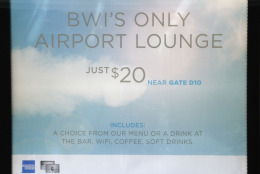
WASHINGTON — Air travel has become one of the most unpleasant experiences imaginable: long lines, delayed flights and overpriced food.
But a new model is emerging that aims to bring comfort and even a hint of luxury to the average traveler.
Airspace Lounge, in Baltimore-Washington International Thurgood Marshall Airport, offers free Wi-Fi, snacks and travel kits for just $22 per day, including tax. Customers also receive a $7 voucher that can be used toward alcoholic beverages and food items inside the lounge.
“I love it,” says Deana Woods, who traveled from Portland, Oregon, to Baltimore for an annual teachers conference.
“I come in here because it’s quiet. I have food. I have access to a million outlets.”
Surrounded by wine, cheese, coffee and her laptop, Woods is hardly the picture of anxiety and frustration we have come to expect from people at the airport. Instead, she is smiling and settling in to work while she waits for her flight home.
Woods discovered Airspace Lounge when it first opened at BWI in 2011. As a United Airlines frequent flier, she often used the airline’s own club, which was where Airspace Lounge is today. When United reduced its service out of Baltimore, the company closed its lounge, and Airspace quickly moved in.
“We’re trying to fill a niche,” says Julian Tchernev, Airspace Lounge’s general manager at BWI. “We also want to be accessible to everyone.”
Tchernev says luxury lounges are more common in his native Europe, but they are also much more expensive. The last time he visited one of those lounges in London Heathrow Airport, for example, he paid roughly $135.
“They are definitely not for the average person,” he says.
Airspace operates lounges inside BWI, New York’s John F. Kennedy International Airport, Cleveland Hopkins International Airport and San Diego International Airport. The company’s headquarters are at Washington Dulles International Airport, but Airspace doesn’t operate any lounges there because so many airlines have already have their own, Tchernev says.
Airspace is currently BWI’s only lounge.
Throughout the U.S., most airport lounges are tied to specific airlines or credit cards. American Express offers some of its card users access to Delta, Airspace and Centurion lounges, while Citi card members have access to the Admirals Club or US Airways Club.
But these traditional models exclude the vast majority of travelers, and independent companies are taking notice.
John D. Kasarda, director of the Center for Air Commerce at University of North Carolina’s Kenan Institute of Private Enterprise, sees inclusive programs and lounges as the future of travel.
“These are happening more so outside the United States, but also inside the United States,” he says. “They serve travelers that might not be part of a major alliance [but] that need the lounge for relaxation and to conduct business.”
Some airports are adding a dose of glam to their lounges. At Hartsfield-Jackson Atlanta International Airport, music mogul Jay Z opened a swanky bar in March meant to recreate the nightclub experience.
40/40 Club occupies 1,500 feet of Concourse D. It will soon be divided into two floors: One floor will house the existing sports bar and another floor will contain a VIP lounge, which is expected to open this fall.
Kasarda says more of these lounges are in various planning stages throughout the country.
“Millions of people pass through the airport,” he says. “They generate more money than shopping malls. Businesses are taking notice.”
Follow @WTOP and WTOP Entertainment on Twitter and WTOP on Facebook.







